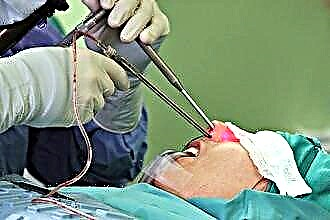Extrasystole is one of the manifestations of heart rhythm disturbances (arrhythmias). This is not a disease, but only a symptom of it. When detecting extrasystole in a pregnant woman, it is important to understand whether it is dangerous. According to the medical literature, various rhythm disturbances occur in 15% of expectant mothers, but only half of them require treatment. Knowing how it manifests itself and why extrasystole occurs during pregnancy, we can notice its symptoms in time, start therapy and avoid the development of complications.
Causes of extrasystole during pregnancy
Cardiac arrhythmias are understood as conditions in which the basic properties of the heart change - excitability, conductivity and automatism. In this case, the work of the myocardium is disrupted. The frequency and rhythm of heart contractions changes, the conduction of impulses through the tissues slows down. The blood flow through the internal organs deteriorates, and various disturbances in their work occur.
The reasons for the development of extrasystole in pregnant women are not fully understood. During gestation, there are no changes in the structure of the heart muscle and its conduction system, which could lead to a rhythm disturbance. But extrasystole occurs - and is often detected only during the period of gestation. After childbirth, in a large number of women, all heart rhythm disturbances disappear without a trace and do not affect the further course of life.
There are several factors that provoke the development of extrasystole during gestation:
- Hemodynamic reasons: an increase in the BCC - the volume of circulating blood by 20% of the original; increased cardiac output; increased heart rate.
- Vegetative factors: active release of catecholamines (adrenaline, norepinephrine) and increased tissue susceptibility to them. This is considered a natural response to stress - that is, pregnancy.
- Hormonal changes: an increase in the concentration of estrogen, progesterone, renin, angiotensin in the blood of the expectant mother. These hormones contribute to the normal course of pregnancy and childbirth.
The likelihood of developing pathology increases after 20 weeks. During this period, the load on the myocardium increases, and rhythm disturbances appear. We observed a large number of patients and found that the risk of extrasystole increases in such situations:
- multiple pregnancy;
- polyhydramnios;
- heart disease that arose before pregnancy (including congenital and acquired defects);
- endocrine disorders in the mother (diabetes mellitus, obesity, hyperthyroidism);
- insufficient nutrition and strict diets (lead to a lack of magnesium and potassium, which are necessary for the full functioning of the heart muscle);
- alcohol abuse, addiction to coffee and strong tea;
- hard physical work while carrying a fetus;
- stressful situations.
All of these women are at high risk and require special attention from a doctor.
Symptoms and Signs
In about half of pregnant women, extrasystole is asymptomatic. The expectant mother feels well, does not notice interruptions in the work of the heart, and leads a usual way of life. Pathology is revealed by chance during a planned study - electrocardiography (ECG).
Some women, against the background of extrasystole, have the following symptoms:
- interruptions in the work of the heart (feeling of fading);
- discomfort in the chest area;
- shortness of breath with light exertion;
- causeless anxiety and anxiety;
- weakness and fatigue.
In the second half of pregnancy, many women notice a change in fetal behavior. The kid becomes more active or, on the contrary, calms down. Such symptoms indicate a possible fetal hypoxia. Mandatory consultation with a gynecologist is required.
Consequences for the fetus
Extrasystole can affect the development of the fetus. Impaired blood flow in the heart muscle interferes with the proper supply of oxygen to the tissues. With minor and short-term changes in rhythm, this is not dangerous. The fetus adapts well enough to hypoxia, mobilizing the reserves of the mother's body. With a long course of the disease, oxygen starvation of the fetal tissues develops, the adaptation of the woman's body to pregnancy is disrupted, and complications arise:
- chronic fetal hypoxia against the background of placental insufficiency;
- intrauterine growth retardation;
- preeclampsia;
- termination of pregnancy: spontaneous miscarriage up to 22 weeks, premature birth - from 22 to 37 weeks.
Statistics show that the likelihood of developing such complications is higher against the background of existing heart diseases.
How to recognize extrasystole?
It is possible to diagnose pathology by performing an ECG. There are two types of rhythm disturbances:
- supraventricular extrasystole (NVES);
- ventricular premature beats (VES).
The supraventricular variant in the physiological course of pregnancy occurs more often than other rhythm disturbances and is up to 65%. Less often, the ventricular form is detected.
The photo below shows a supraventricular extrasystole.
The next photo shows ventricular premature beats.
If abnormalities in the ECG are detected, the woman is sent for consultation to a therapist and cardiologist. During the examination, the doctor pays attention to the color of the skin and the general condition of the patient. Blood pressure, pulse, and respiratory rate are measured. Auscultation is performed - listening to heart sounds.
Additional information about a woman's condition is given by the following research methods:
- daily ECG monitoring;
- echocardiography - ultrasound of the heart;
- hemostasiogram - blood clotting test.
The condition of the fetus is assessed using auscultation and ultrasound; at a later date, CTG is connected.
When do you need to see a doctor?
The benign course of extrasystole is noted in the absence of symptoms or good seizure tolerance. But, if a woman's condition worsens, it is necessary to reconsider the tactics of management.
Expert advice
Pregnant women adapt well enough to arising rhythm disturbances, and often no special treatment is required. If the expectant mother does not notice attacks of extrasystole or during them feels good (there are minor interruptions in the work of the heart, there may be anxiety, but there is no need to change the usual way of life), it is enough to wait out this period. But if the state of health of a pregnant woman worsens, there is discomfort in the chest, a feeling of fear, insomnia - you need to see a doctor. The reason for the examination may also be the appearance of other changes on the cardiogram, not related to extrasystole.
Treatment principles
Extrasystole and pregnancy are compatible, and often special therapy is not even required. Drug treatment is prescribed in such situations:
- severe discomfort - deterioration of the woman's well-being;
- the progression of pathology with the course of pregnancy;
- deterioration of the fetus.
Most of the antiarrhythmic drugs on offer are prohibited during pregnancy. Some funds can be used only after 14 weeks - at a time when the internal organs of the fetus are already formed. We are faced with a non-trivial task - to find such medicines that can improve the condition of the expectant mother, but will not harm the child. When choosing a drug, it is important to consider: during pregnancy, a large dosage is often required. This is due to an increase in BCC, increased metabolism of the drug in the liver and active excretion through the kidneys.
The selection of antiarrhythmic drugs is carried out taking into account the recommendations of the FDA (Food and Drug Administration) - the food and drug administration. All drugs according to the FDA are divided into several groups, taking into account the possibility of their use in pregnant women. During gestation, it is allowed to use medicines of groups A and B - safe and conditionally safe for the fetus. This means that the studies carried out did not reveal a negative effect of these funds on the development of the child or found an insignificant risk. In rare cases, it is suggested to take drugs from group C when the potential benefit outweighs the likely harm.
Patient management tactics are determined by hemodynamic parameters. If, against the background of extrasystole, the functioning of the mother's cardiovascular system is disrupted or there are violations of the uteroplacental and fetal blood flow, compulsory drug therapy is performed. Priority is given to preparations based on Solatol, Acebutol (FDA category - B). The reception of sedatives is shown - an extract of valerian and motherwort.
If the condition of the woman and the fetus is stable, the first step is to try to find the cause of the extrasystole (heart and lung diseases, endocrine disorders, neurosis, etc.). Having removed the main pathology, we can do without other medical correction.
Case from practice
A 25-year-old woman, at a follow-up visit to a gynecologist, complained of a feeling of heart sinking, palpitations, and anxiety. After the survey, it became known that such symptoms appeared at 22 weeks, but previously the patient did not pay attention to them, mistaking them for the usual manifestations of pregnancy. The duration of this pregnancy is 28 weeks, the symptoms gradually increase. The patient complains that she often wakes up at night, feels tired during the day and cannot work properly.
From the anamnesis it is known that the pregnancy is the first, planned. Before the conception of the child, the woman was not registered with a therapist or cardiologist, she does not note diseases of the cardiovascular system. She is currently taking a multivitamin for pregnant women (Vitrum Prenatal Forte). On examination, the woman's condition is satisfactory. The condition of the fetus is not disturbed (according to auscultation data).
The patient was referred for an EKG, which revealed supraventricular tachycardia. After consulting a therapist, the woman underwent further examination, no pathology was found on the part of the internal organs. Was diagnosed with "Vegetovascular dystonia". The patient was scheduled to take motherwort extract for 4 weeks. A full night's sleep of at least 8 hours is recommended, regular walks, refusal of strong tea and coffee. After 6 weeks, the woman's condition improved. There were no complications of pregnancy at the time of the follow-up examination.
In the treatment of extrasystole in pregnant women, special attention is paid to non-drug therapy. Recommended:
- A good night's sleep for at least 8 hours. Daytime sleep - 1-2 hours if possible and necessary.
- Adequate physical activity: regular walking, swimming, yoga for pregnant women.
- Refusal to use tea, coffee, cocoa, seasonings and spices.
- Correction of the psycho-emotional background: avoidance of stressful situations, psychotherapy.
Management tactics
Functional extrasystole does not interfere with the normal course of pregnancy and bearing the fetus. We usually do not find contraindications to natural delivery. A woman can give birth to a healthy child at term and avoid the development of complications.
Extrasystole associated with organic damage to the heart or other organs, endocrine disorders and other conditions requires mandatory observation by a specialist. The tactics of managing a woman will depend on the severity of the underlying disease.
All pregnant patients, regardless of the severity and form of extrasystole, are monitored by a therapist and cardiologist until the very birth. With a stable condition of the woman and the fetus, a follow-up examination (ECG) is performed before childbirth. If the patient's condition worsens or complications of gestation develop, additional examination is indicated.
Indications for cesarean section with extrasystole are rare. They are usually associated with comorbidities or complications of pregnancy. In a planned manner, the operation is carried out for a period of 37-39 weeks, in an emergency - at any time.
Have you encountered such a phenomenon as extrasystole during pregnancy? What did the doctor recommend to you in this situation?



